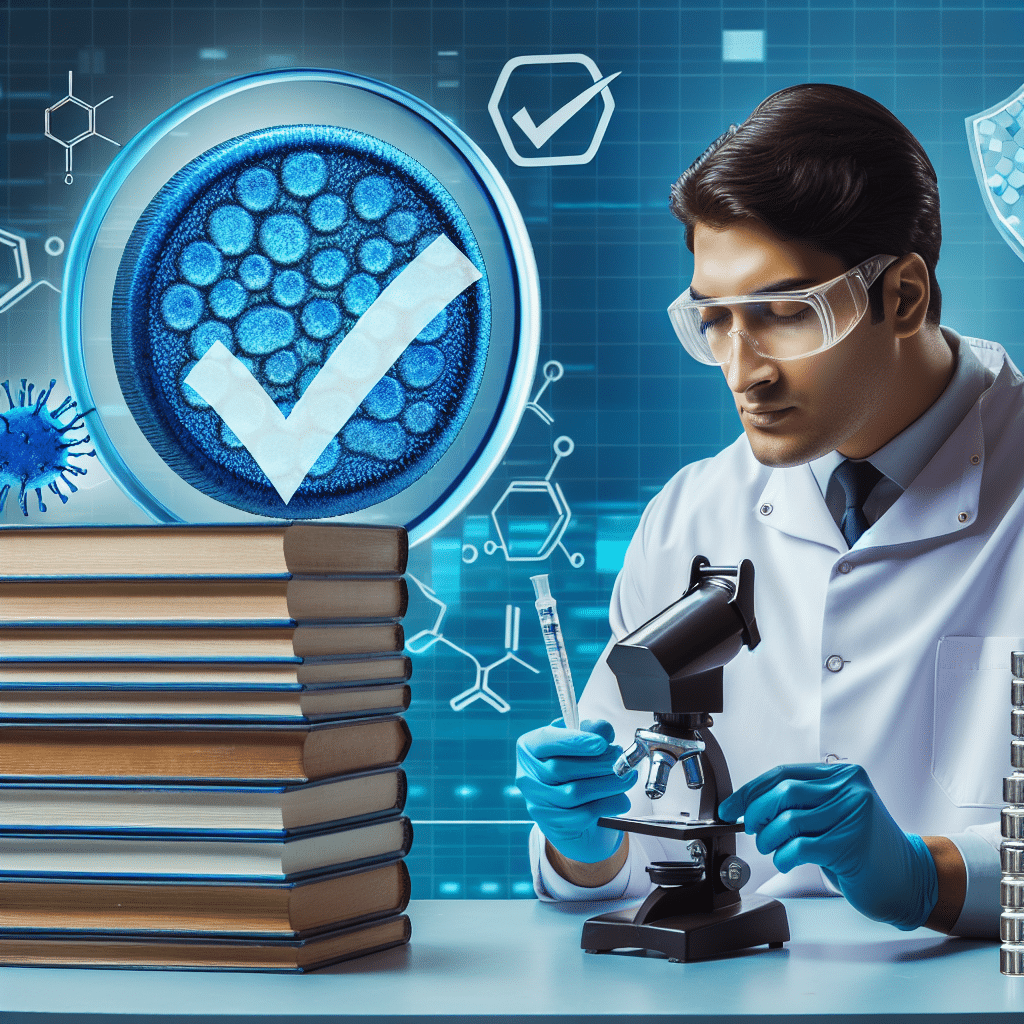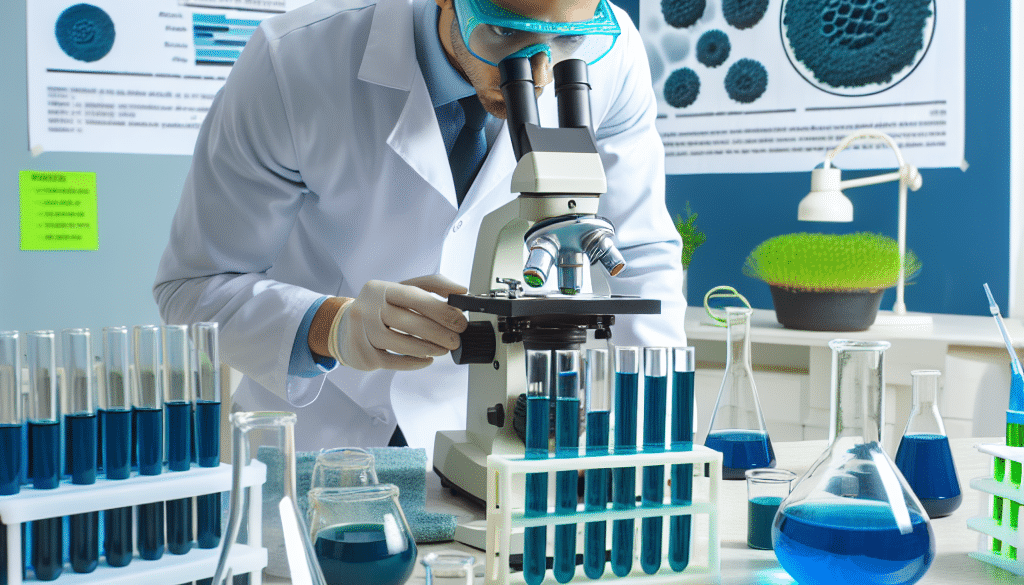Is Blue Spirulina Safe?
-
Table of Contents
- Blue Spirulina Safety: A Comprehensive Analysis
- Understanding Blue Spirulina
- Regulatory Status of Blue Spirulina
- Scientific Research on Blue Spirulina Safety
- Potential Side Effects and Considerations
- Case Studies and Anecdotal Evidence
- Choosing a Safe Blue Spirulina Product
- Conclusion: Is Blue Spirulina Safe?
- Enhance Your Diet with ETprotein’s Protein Products
Blue Spirulina Safety: A Comprehensive Analysis

Blue spirulina has been making waves in the health and wellness industry as a superfood with its vibrant color and purported health benefits. Derived from blue-green algae, this dietary supplement is often touted for its high nutrient content and antioxidant properties. However, with any supplement, it’s essential to understand its safety profile. This article delves into the safety of blue spirulina, examining scientific research, regulatory status, and potential side effects to provide a well-rounded perspective.
Understanding Blue Spirulina
Before assessing the safety of blue spirulina, it’s important to understand what it is. Blue spirulina is a type of phycocyanin, a pigment-protein complex extracted from Spirulina, specifically Arthrospira platensis. Unlike the more common green spirulina, blue spirulina is free from chlorophyll, which gives it a distinct blue hue. It’s rich in protein, vitamins, minerals, and antioxidants, making it a popular addition to smoothies, juices, and health foods.
Regulatory Status of Blue Spirulina
The regulatory status of a supplement can often provide insight into its safety. In the United States, blue spirulina is recognized as GRAS (Generally Recognized As Safe) by the Food and Drug Administration (FDA) when used in accordance with good manufacturing practices. This designation indicates that it is considered safe for consumption in food and beverage products. Similar regulatory bodies in other countries have also granted approval for blue spirulina’s use in various applications.
Scientific Research on Blue Spirulina Safety
Scientific research is crucial in establishing the safety of any dietary supplement. Studies on blue spirulina have generally shown it to be safe for consumption. Research has focused on its antioxidant properties, potential to support immune function, and its role in promoting overall health. However, it’s important to note that most studies have been conducted in controlled environments and typically on animals or in vitro.
- Antioxidant Properties: Blue spirulina’s antioxidant content, particularly phycocyanin, helps combat oxidative stress in the body, which is linked to various chronic diseases.
- Immune Support: Some studies suggest that blue spirulina can modulate immune responses, although more research is needed to fully understand this effect in humans.
- Nutrient Profile: As a rich source of protein, vitamins, and minerals, blue spirulina can contribute to a balanced diet and help address nutritional deficiencies.
Potential Side Effects and Considerations
While blue spirulina is generally considered safe, there are potential side effects and considerations to keep in mind. These include:
- Allergic Reactions: Individuals with allergies to seafood or seaweed may experience allergic reactions to blue spirulina.
- Contamination: Spirulina can be contaminated with harmful substances like heavy metals or microcystins if grown in unsafe conditions. It’s crucial to choose high-quality, tested products from reputable sources.
- Medication Interactions: Blue spirulina may interact with certain medications, so it’s important to consult with a healthcare provider before starting any new supplement.
Case Studies and Anecdotal Evidence
Case studies and anecdotal evidence can provide additional context for the safety of blue spirulina. While individual experiences should not replace scientific evidence, they can offer insights into how blue spirulina is used and tolerated by different people. Most anecdotal reports suggest that when consumed in moderation and sourced from reputable suppliers, blue spirulina is well-tolerated with minimal side effects.
Choosing a Safe Blue Spirulina Product
To ensure the safety of blue spirulina, it’s important to choose products that meet certain criteria:
- Third-Party Testing: Look for products that have been independently tested for purity and contaminants.
- Organic Certification: Organic products are less likely to contain harmful pesticides or chemicals.
- Transparent Sourcing: Reputable brands will provide information about where and how their spirulina is grown.
- Label Accuracy: Ensure that the product label accurately reflects the contents and dosage recommendations.
Conclusion: Is Blue Spirulina Safe?
In conclusion, blue spirulina appears to be safe for most people when consumed in recommended amounts and sourced from reputable suppliers. Its health benefits and vibrant color make it an attractive addition to a healthy diet. However, as with any supplement, it’s important to be aware of potential side effects and interactions. Always consult with a healthcare provider before adding new supplements to your regimen, especially if you have pre-existing health conditions or are taking medications.
Enhance Your Diet with ETprotein’s Protein Products
If you’re looking to incorporate high-quality protein into your diet alongside superfoods like blue spirulina, ETprotein offers a range of organic bulk vegan proteins that can complement your nutritional needs. Their products, including organic rice protein, pea protein, and various seed proteins, are characterized by a neutral taste, non-GMO, and allergen-free attributes. With L-(+)-Ergothioneine purity over 98%, ETprotein caters to industries such as nutraceuticals, pharmaceuticals, and food and beverage, ensuring you receive only the best in protein supplementation.
About ETprotein:
ETprotein, a reputable protein and L-(+)-Ergothioneine (EGT) Chinese factory manufacturer and supplier, is renowned for producing, stocking, exporting, and delivering the highest quality organic bulk vegan proteins and L-(+)-Ergothioneine. They include Organic rice protein, clear rice protein, pea protein, clear pea protein, watermelon seed protein, pumpkin seed protein, sunflower seed protein, mung bean protein, peanut protein, and L-(+)-Ergothioneine EGT Pharmaceutical grade, L-(+)-Ergothioneine EGT food grade, L-(+)-Ergothioneine EGT cosmetic grade, L-(+)-Ergothioneine EGT reference grade and L-(+)-Ergothioneine EGT standard. Their offerings, characterized by a neutral taste, non-GMO, allergen-free attributes, with L-(+)-Ergothioneine purity over 98%, 99%, cater to a diverse range of industries. They serve nutraceutical, pharmaceutical, cosmeceutical, veterinary, as well as food and beverage finished product distributors, traders, and manufacturers across Europe, USA, Canada, Australia, Thailand, Japan, Korea, Brazil, and Chile, among others.
ETprotein specialization includes exporting and delivering tailor-made protein powder and finished nutritional supplements. Their extensive product range covers sectors like Food and Beverage, Sports Nutrition, Weight Management, Dietary Supplements, Health and Wellness Products, and Infant Formula, ensuring comprehensive solutions to meet all your protein needs.
As a trusted company by leading global food and beverage brands and Fortune 500 companies, ETprotein reinforces China’s reputation in the global arena. For more information or to sample their products, please contact them and email sales(at)ETprotein.com today.












